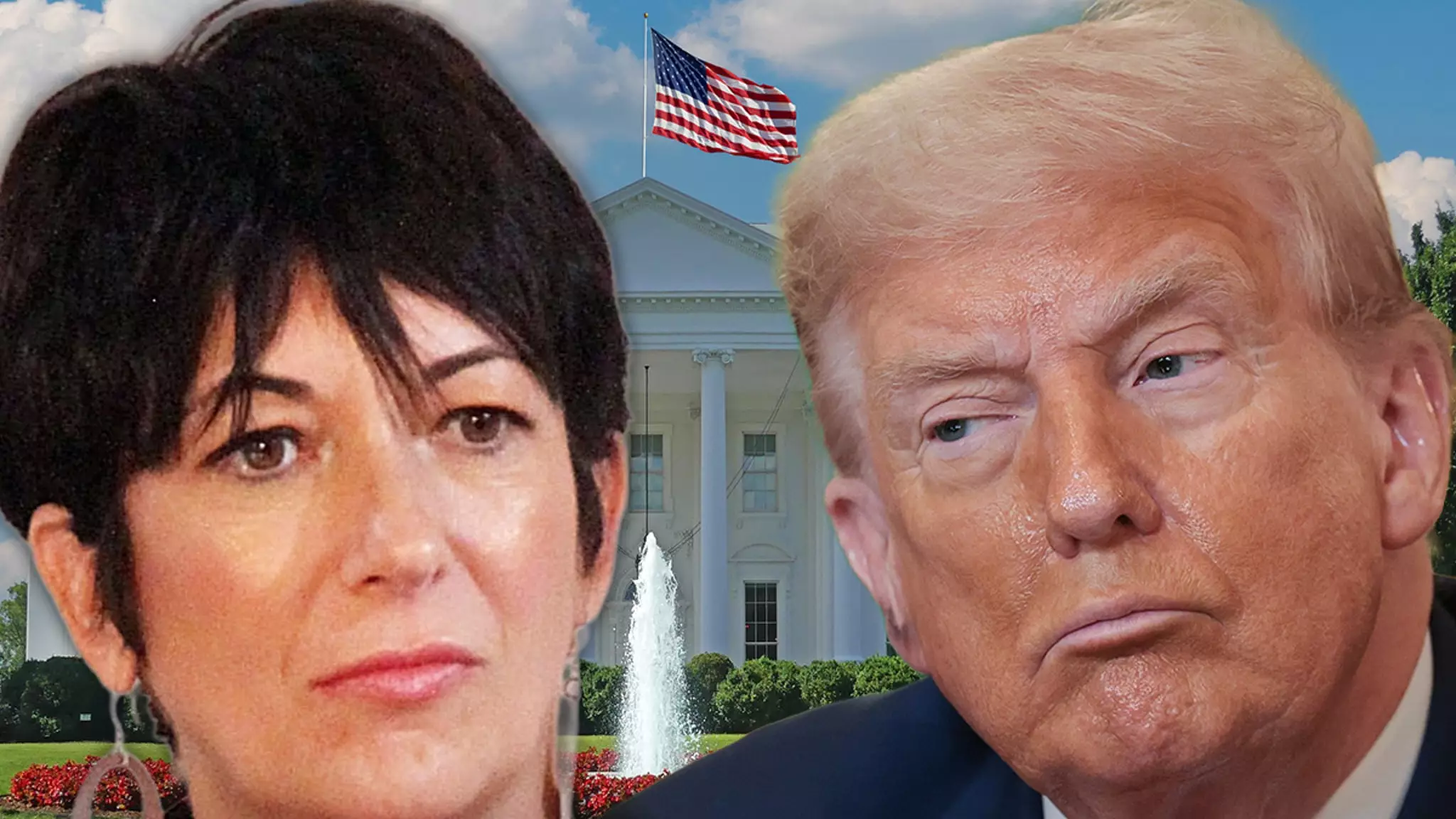Ghislaine Maxwell remains a figure at the center of one of the most contentious legal scandals of recent times. Despite her conviction and subsequent sentencing to 20 years in prison for aiding Jeffrey Epstein in the exploitation of minors, she clings to a fragile hope that a political figure might intervene on her behalf. Specifically, she waits for a possible pardon from former President Donald Trump, fueled by speculation and rumors stirred by her supporters. However, credible sources with insight into the White House’s stance dismiss these hopes outright, emphasizing that no such consideration is underway or imminent. This reveals an underlying narrative—a desire for preferential treatment that conflicts sharply with the harsh realities of judicial accountability.
While public outrage has surged over what many perceive as an unjust race to absolve her, officials remain firm. The notion that Maxwell might be freed through a presidential pardon appears increasingly improbable, especially given her recent legal battles and the political climate. The disconnect between her supporters’ optimism and government skepticism underscores a stark reality: the justice system and political authorities maintain their stance, refusing to lend her an escape route based on sentiment or political influence.
The Politics of Secrecy and the Illusion of Justice
One of the most intriguing aspects of this saga is the controversy surrounding Jeffrey Epstein’s so-called “client list.” For years, there have been rumors suggesting that Epstein was connected to numerous high-profile individuals in politics, Hollywood, and beyond. The recent DOJ announcement denying the existence of an accessible client list—a move seen as an effort to quell public speculation—has only served to deepen suspicions. Critics argue that this lack of transparency fosters a notion that powerful figures may have avoided scrutiny.
Ghislaine Maxwell’s conviction and her subsequent attempts to appeal or seek clemency highlight the complex web of justice, politics, and secrecy. Her legal team’s assertion that the system vilifies her while shielding more influential names echoes a broader skepticism about accountability. The fact that she offered cooperation after Epstein’s arrest, only to be rejected by authorities, raises questions about the true nature of the justice served. Was she merely made an example to appease public outrage, or is there a deeper narrative about protecting the powerful at all costs?
The Power Struggles Behind the Scenes
The relationship between Epstein, Maxwell, and political figures like Trump adds another layer of complexity. Well-documented friendships and associations blur the lines between justice and privilege, fueling theories that some individuals in power might have had knowledge or involvement in Epstein’s network. The silence from the White House regarding Maxwell’s hoped-for pardon signals a clear message: immunity and favoritism are not part of the current administration’s approach. Yet, the persistent stories and legal maneuvers demonstrate that the debate over who is truly accountable remains unresolved.
Lawyer David Oscar Markus’s insistence that her case could be reconsidered by the Supreme Court indicates a belief that her incarceration is unjust. Such claims, however, are often dismissed as attempts to leverage the legal system to escape accountability rather than genuine avenues for justice. In this environment, Maxwell’s hopes for freedom seem increasingly forlorn, overshadowed by the broader questions of whether true justice can ever be realized in cases entangled with powerful interests.
This entire saga exposes the fallacy of innocence until proven guilty when wealth and influence seem to rewrite the rules. Ghislaine Maxwell’s story isn’t just about a conviction; it’s about the ongoing struggle to discern truth within a system riddled with opacity, privilege, and political calculations. The persistent hope for her pardon may be an act of desperation or denial—yet it also symbolizes the enduring human craving for justice, fairness, and accountability amid a landscape often dominated by secrecy and power.

Leave a Reply